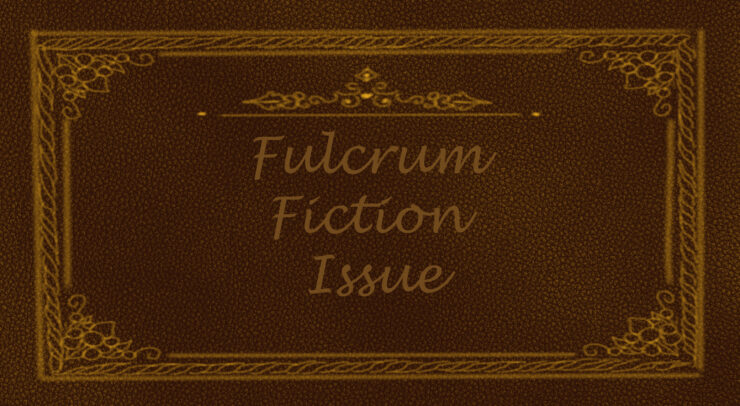Though the wind shrieks ferociously in what is, even for January, a rather frigid winter night, he lays sprawled on his bed naked, his covers draped on the floor, his window cracked wide open; even still, the sheets under his body are damp, and his forehead glistens in the light emanating from the lamp seated on the nightstand his father built for him when he was seven. He can hear his father shovelling outside, even though he begged him not to. I love my dad, he thought.
He knows exactly how it appears to others: his father’s face, bursting red, brighter than the lights shining from the roof; his back hunched over, as if somebody were literally forcing his neck down, gusts of wind punching him in the head, over and over; and, most of all, the grunts, whose ferocity screams for help, ensuring that even those who dare to look away remain perturbed.
He knows exactly what people think, too: Why is Frank shovelling alone? Where is that ungrateful son of his? The truth is, his father shouldn’t be shovelling alone. In fact, at this point, he shouldn’t even be going outside without help; one slip and the plummeting snow would quickly form a casket overtop of him. However, he isn’t ungrateful; he shouted at his father all the way out the door, promising he’d do it tomorrow. His father wouldn’t listen. Not because he didn’t believe his son. He knew his son would do it—he always did. He ignored his pleas because he relished the chance to do something on his own again. He also knew damn well that considering his son didn’t storm out of his room to pry the shovel from his ageing grip, as he normally did, he must seriously be sick.
He was sick, but not in a way his father would understand. Although his naked, sweaty body suggested a bad case of the flu, the reality was much worse. He’d played football his whole life, but he’d had never felt this beaten down; his arms barely felt strong enough to hold his phone above his head, as he squinted into the dim screen. Instead of reading one of the dozen books stacked on his desk, each one coated in a thick layer of dust, his eyes remained glued to the time, watching as each minute, which felt more like an hour, passed by.
At around 10 p.m. he figured it would finally be safe to venture outside of his room; he hadn’t heard a single noise in at least half an hour. Once upright, he looked around his room in disgust. Beside his nightstand rested his pillow, completely covered in chip crumbs. He reached for it, but upon picking it up, he found underneath it an open deodorant stick sitting half inside of a McDonald’s bag. Grossed out, he decided to leave the mess—and wretched smell, which he was just noticing now—until the morning to rid of. He would have to do it then, after all, as he had school tomorrow. The only thing worse than accepting the reality of the new semester would be having his father come into his room to check up on him.
After putting on a pair of dirty underwear he found sandwiched between his backpack and one of his shoes, he slowly opened his door, which had been creaking ever since he could remember, so not to wake his father, and gently closed it behind him, leaving behind his fortress of shame. He first went to grab a cold, wet towel for his face, hoping to wipe away the last couple of his days from his memory. Then, he quietly trudged over to the kitchen, where he was to grab another few bags of chips, a soda, and return to his room for the remainder of the night.
He noticed something unusual: sitting on the table in the living room was a pen. Most people probably wouldn’t have noticed or cared, but he found this strange; his father never forgot to put things back. He went downstairs to return it to his father’s office—he didn’t want his father to see it in the morning, as he knew he’d beat himself up over it—even though he wasn’t supposed to go in there without his permission. Just as he was about to leave, he noticed a red folder sticking out slightly from the middle of a pile of tax folders. He wouldn’t have thought anything of it, except he remembered his father always put tax forms in beige folders. He knew his father would kill him if he found out, but he felt a strange sensation to open the folder (he was always a curious one, his father told him). He slipped it out, careful to see where it was in the stack, to ensure he put it back in exactly the right spot.
When he opened it, he was surprised to see a hand-written letter inside. Against every fibre in his body, he began to read. Shortly thereafter, his hands starting trembling as he gripped the chair in front of him, which stopped his legs from collapsing underneath him. His eyes were already tearing up, but upon reading the last paragraph, he began to cry uncontrollably; for the first time in months, though, they were tears of happiness.
“I know how hard it must have been for you to deal with your mental health and continue to take care of me, Jack. You’re so much stronger than I ever was. Your mother would be proud”.
At the bottom, it was dated February 12, his birthday. A rush of emotions flooded through his entire body, from love to relief, to shock. But one stood out from the rest: shame. Not the usual shame he felt when his mental health was at its worst; shame that he had felt the need to hide it from his father. I love my dad, he thought.
—Liam Wray, second-year political science.






